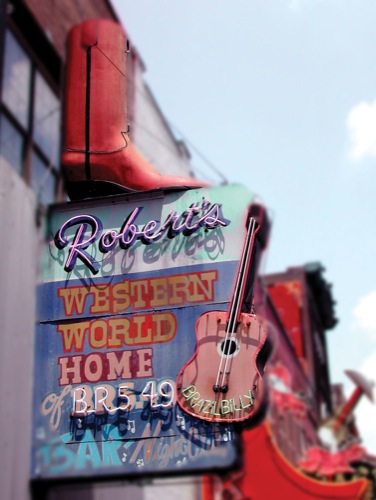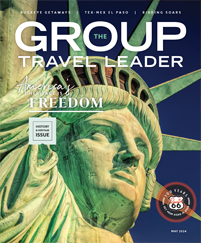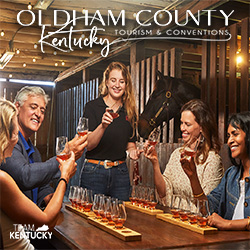
Courtesy Nashville CVB
It began with a group of 19th-century black college students who sang to raise money for their school, was nurtured by traditional country music in the mid-20th century and blossomed into a 21st-century cosmopolitan mix of music that spans numerous genres.
Nashville, Tenn., is truly Music City, a name it proudly proclaims to the world without any fear of contradiction or dispute.
“Our brand is our product,” said Butch Spyridon, president of the Nashville Convention and Visitors Bureau, which has Music City as its tagline. “It’s paramount.”
Long associated with country music, as epitomized by the Grand Ole Opry, the long-running radio show that has been a staple of the airwaves since 1925, Nashville is now a center for classical, rock, bluegrass, Christian, gospel, blues, soul, jazz, pop — you name it — music.
“Whatever your taste, you will find something musical in Nashville,” said Tina Wright, public relations director for the Country Music Hall of Fame and Museum.
The Music City moniker reportedly dates back to the 1870s, when the Fisk Jubilee singers from Nashville’s Fisk University were touring the world to save their college. When they sang for England’s Queen Victoria in 1873, she was so impressed she reportedly said, “They must come from Music City.”
The name resurfaced in the 1950s when it was popularized by a local radio disc jockey. Today, it is synonymous with Nashville.
Spyridon thinks the name has stuck and become powerful because of the city’s nurturing attitude toward musicians.
“There is a willingness to collaborate, an environment that nurtures creativity,” he said. “We have a long history of producing both songs and artists and a unique creative community of songwriters who continue to produce songs of all genres.”
Groups that want to immerse themselves in the Nashville music scene have numerous options, with more than 100 live music clubs operating on any given night.
“There’s music around every corner,” said Jenny Steuber, the director of public relations for the CVB.
“Embrace and consume”
Spyridon offered two tips. “One, I would take the daytime and try to get a sense of the history,” he said, at sites such as the Country Music Hall of Fame and Museum, Studio B, Hatch Show Print and the Ryman Auditorium.
He said that he would then download the CVB’s new music app and find the different types of music and places where they are performed.
“Pick what you like, embrace and consume,” he said.
The Country Music Hall of Fame and Museum is a great place to absorb the history of the genre that is still the bedrock of Nashville music. Its core permanent exhibit, “Sing Me Back Home,” which covers two floors of the modernistic downtown building, traces the history of country music from the 19th century to the present with photographs, original recordings, video and artifacts such as stage costumes, instruments and automobiles, including Elvis Presley’s gold-plated Cadillac.
The moving Hall of Fame Rotunda contains the plaques of the members of the Country Music Hall of Fame.
The museum plans a $75 million expansion to be completed in spring 2014.
“We are going to more than double in size to 350,000 square feet,” said Wright. “We will have a lot of new things, including an 800-seat theater, an educational center and a lot of additional gallery space.”
The museum offers several interesting behind-the-scenes group options, including opportunities to meet with songwriters and do an actual recording at RCA’s Studio B.
Operated by the museum, the historic studio on Music Row on 16th Street, was the site of numerous hit recordings, such as Roy Orbison’s “Only the Lonely,” the Everly Brothers’ “Dream” and Dolly Parton’s “Jolene.” Presley recorded more than 250 songs in the studio.
Hatch Show Print on Broadway, one of the country’s oldest letterpress poster print shops, is marking its 125th anniversary. Its walls are lined with posters it has printed for everyone from Bob Dylan to Johnny Cash, and visitors can watch its workers layout the posters by hand.










